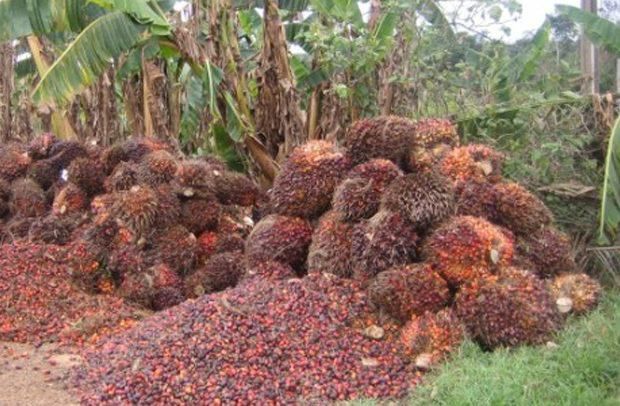Palm trees, particularly the oil palm have a significant impact on the country's economy and local communities.
Rarely found in homes these days, the palm tree is grown in large plantations.
In 2021, a study carried out by the Institute of Statistical, Social, and Economic Research (ISSER) at the University of Ghana revealed that the Oil Palm industry holds substantial economic promise, capable of notably reducing rural poverty.
As per the findings, the oil palm sector not only supports the livelihoods of farmers but also benefits various stakeholders throughout the value chain, such as operators, transporters, seed distributors, and sellers of agricultural inputs.
Additionally, the sector engages a significant number of contractors, ranging from 1,000 to 3,000, particularly during the harvesting phase.
Here are some of the many uses of palm trees:
- Palm oil production:
Ghana is a major producer of palm oil, extracted from the fruit of the oil palm. Palm oil is a versatile cooking oil and is also used in food processing, cosmetics, and soap production.
- Construction:
Wood: Some species of palm trees, like the coconut palm, provide wood that is used in construction for making furniture, fences, and even buildings.
- Medicinal uses:
Saw palmetto: The berries of the saw palmetto palm have been traditionally used in herbal medicine to treat various conditions, particularly in relation to prostate health.
Landscaping and ornamental use:
Many palm species are cultivated for their ornamental value and are commonly used in landscaping to enhance the aesthetic appeal of gardens, parks, and urban areas.

- Traditional crafts:
Basketry: Palm leaves and fibers are used in traditional crafts, including basket weaving and the production of hats, mats, and other woven items.
- Thatching and roofing:
Palm fronds and leaves are often used for thatching roofs in traditional and rural structures in tropical regions.
Biofuel production:
Palm oil: While controversial due to environmental concerns, palm oil is used as a biofuel in some regions.
- Lubricants and soaps:
Palm oil: Apart from its use in food, palm oil is used in the production of soaps, cosmetics, and lubricants.
- Environmental and ecological functions:
Palm trees contribute to the ecosystem by preventing soil erosion, providing habitat for various species, and offering shade in tropical environments.
- Rituals and traditions:
In many cultures, various parts of the palm tree are used in rituals, ceremonies, and traditional celebrations.
Livelihoods and employment:
The palm oil industry in Ghana supports the livelihoods of many local communities. Smallholder farmers and larger plantations contribute to the cultivation and harvesting of oil palm, providing employment opportunities.
It's important to note that while palm trees have numerous practical uses, there are also environmental concerns associated with the large-scale cultivation of certain palm species, particularly for palm oil production, which has led to deforestation and habitat destruction in some regions.
Sustainable practices and responsible harvesting are crucial to mitigate these issues.
)
)
)
)
)
)
)
)
)
)
)
![Messi visit turns ugly in Kolkata as frustrated fans revolt at stadium [Video]](https://sportal365images.com/process/smp-images-production/pulse.com.gh/13122025/063490d8-7f44-4fee-ae15-4e386efec018.jpg?operations=autocrop(112:112))
)
)
)
)
)